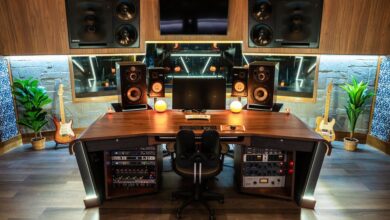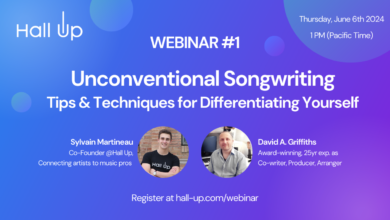Music Community Needs to Focus on Engagement

In the 21st century, musicians seem to have their work cut out for them. With the ever changing consumption of media, musicians are continuously finding themselves trying to rise above the contrived noise asking themselves, “is more better than less?” With articles that read “23 ways musicians can make money” “8 Lucrative Marketplaces for Musicians to Make Money” or books such as “All you Need to Know About Music Business” – Don Passman or “The Indie Band Survival Guide, 2nd Ed” – Randy Chertkow & Jason Feehan, it would seem that there has to be plenty of ways for musicians to be successful, right? Unfortunately most musicians haven’t read these articles or books. This isn’t to say that two articles and a couple of books are going to make you a successful musician; but what if you were to read these among many other notable articles and books?
There’s so much happening and changing in the music industry right now. You have 2112 inc. + Fort Knox Studios (Chicago/Nashville), Project Music (Nashville), Techstars (Los Angeles), Zoo Labs (Oakland), Abbey Road Red (United Kingdom), Marathon Labs (Multi National), Musitec (Australia) & many more, all playing their role to help move the industry forward.
Most startups, cities, labels, incubators, and accelerators are continuously developing and finding solutions to help the music industry/musicians. With all eyes on innovation, who’s focused on raising awareness and helping musicians learn how to utilize these tools?
How many artists know about utilizing:
Twitch – a social live stream platform that has gained major success in the gaming industry, seeing almost 10million user daily. What’s great for musicians, is that it has become a new and exciting way to engage your fan base. Even gaining new fans from being a part of a massive, fanatic community.
Patreon – “we want to help every creator in the world achieve sustainable income.” What else do you need to know about these beautiful people!?
On Vinyl Media – A B2B company providing retailers with a unique streaming service that helps support the local music community, while developing original content. “Our mission is to build hyperlocal communities centered around local music by sustaining the local music culture, creating a framework of support for local artists through content creation and press, and providing businesses and communities with commercial streaming solutions that support legal, licensed, and local music while sustaining a culture of divergence.”
JamFeed – A platform for artists and fans to engage in realtime 100% of the time. With many social media sites starting to become more of an advertising channel, JamFeed goes directly for what fans and musicians really want, additional access/content. “JamFeed is the easiest way to keep up to date with the music that you love!”
Music Gateway – “Music Gateway is a B2B platform, specifically designed to allow creative and music industry professionals to connect and work together in a global capacity. Developed by industry professionals from all sectors, we help break down barriers that hinder career development by empowering individuals and companies alike. Our unique software helps streamline the way people connect and progress whether this is through hiring music professionals, collaborating or using it as an A&R vehicle to find new talent.”
Tip Cow – “Smash the Jar.” As their slogan applies, here’s an electronic way to capture tips from your fan base/audience. A fun and creative way for fans and patrons to give back, and you no longer have to worry about walking up to the stage and putting money in a jar.
While all of these tools are fantastic, how many musicians/industry reps/fans are currently on these platforms? The answer, probably not as many as there should be!
there is plenty of innovation happening in the music industry right now. One large area of opportunity is education & engagement. For example, there are over 130 non-for profits in Austin alone, to help musicians. To get a good idea of what that ecosystem looks like, just check out Austin Music Foundation‘s website; with an impressive catalogue highlighted in their non profit directory. The issue again is, how many have you heard of? What do they all do? There are plenty of music industry professionals in Austin that are looking for ways to collaborate and leverage one another. What if music industry professionals were working more closely together? What if we started focusing on helping develop the music industry of Austin while the city races after the omnibus resolution?
With so much available and so much opportunity, it’s an amazing time to be in the music industry. Austin is in the process of nurturing and developing a world class industry while solving the Music Census opportunities, and I think we’re all excited to see how it plays out.







Thanks for the article John. I hear this call a lot: “Music industry professionals [should work] more closely together.” I’d like to challenge this for the sake of fruitful discussion. Do you mean to say companies should collaborate beyond their self interest for the good of the community/industry? If so, why? Isn’t there a long history of healthy industries forming when each player acts based on their own needs? We only need to look to nature for inspiration: animals operate solely on base instinct; sometimes collaborating with, sometimes attacking, but usually ignoring others; and healthy ecosystems form from this self-interested chaos (as long as us humans don’t fuck things up.) Further, can you cite an example of an industry opportunity that was missed because two companies weren’t collaborating, and could you (if you’re feeling bold) name two companies that should be working together that currently aren’t? I’m certainly open to other points of view, but I’ve never seen them well articulated, so I’d love to be convinced. Thx! Nathalie Phan Chris Bush Cameron Gibson Theron Pray Dan Redman Curse Mackey Skylar Mae
Appreciate the comment Dave.
Do you mean to say companies should collaborate beyond their self interest for the good of the community/industry? If so, why? ****One of the top opportunities highlighted by the music census among music industry professionals was “creative collaboration”. To answer your question, I’m not saying they need to do one or the other, instead I was asking “what if we did work more collaboratively?.” I did however, point out that we do need to focus more on engagement & education. I think everyone, regardless of their own self interests, noticed a need for action around figuring out how to better support the musicians/venues of Austin post census.
“Isn’t there a long history of healthy industries forming when each player acts based on their own needs?” ****Absolutely! My return question is – Not just Austin, but Texas has been noted for operating in “silos,” or (their own self interests) in your opinion how beneficial has that been, and particularly for the music industry/community of Austin? To your point, many industries have been formed while organizations operate in their own self interests, but that’s clearly not happening here. So instead of waiting for something to materialize, who’s going to help take the bull by the horn and run with it?
“Further, can you cite an example of an industry opportunity that was missed because two companies weren’t collaborating” . ****I personally believe there are missed opportunities every single day. I think something to keep in mind, is that the idea of creating/developing/nurturing a music industry would require the amazing talent pool we have in Austin to capitalize on many collaborative opportunities daily.
“could you (if you’re feeling bold) name two companies that should be working together that currently aren’t?” **** I could, but it’s not any “one or two” specific organizations that’s going to make this work. It’s going to take many professionals in many different fields, working together to develop the music industry of Austin.
I guess looking at the data over the past 4 years even, will help shed some light on whether or not what we’ve been doing has been working.
Good points. The big question left in my mind is “What are we *really* trying to achieve here?” I hear the general goals of “collaboration” and “sustainability” which are perfectly valid, but imho, what’s really needed to galvanize action is a vivid description of what our community could have, but currently doesn’t, and how these benefits tie into the self interest of the different players involved. Not to suggest it’s all on you, but skipping this step sounds like asking a dog to do a trick without the treat afterward.
If I missed the seminal blog post which lays this out in detail, please forgive my ignorance, and you can stop reading now (send link?). But otherwise, a few other thoughts:
Once a destination is set, then the best method of getting there will be much clearer. For some (esp. artists), collaboration is likely the best option. For others (esp. entrepreneurs), “siloing” (aka, staying focused in a little room) is probably the best bet. To each their own – whatever gets the job done.
Or maybe the question is too broad and we don’t need a supreme decree of where the Austin Music community should go. Maybe we each pick a slice of the pie (Mosaic Sound Collective > artist development, TipCow > live revenue, etc), give it our best shot, and let the market sort out the chaos. (Of course, artist resources you point to on your post, and similar efforts, are always helpful.)
When collaboration is in order though, perhaps adding more structure at networking events such as LunchCore (TuneCore / Amy Lombardi) could help. What if everyone is given an opportunity to make a specific ask of their peers for a project they’re working on? If this was an expectation going into the event, this could remove the stigma of seeming selfish, and actually generate shame by NOT asking for help. It could be like a speed dating event – everyone skips the small talk, gets down to business, and by the end has matched with someone they can either help or be helped by. I personally wouldn’t have any problem giving more than receiving as long as I had confidence everyone was paying it forward.
A note of caution for my entrepreneur friends: really think before you get pulled into “collaborative” endeavors. Everyone you talk to will have good ideas, but only you understand your vision. Even dealing with the well-intentioned folks, you’ll at a minimum be investing significant mental bandwidth. And there’s a good chance that just by talking with someone about the big picture, they’ll start to feel a sense of ownership, and could be disappointed when there’s no pot of gold for them at the end of the rainbow. And let’s not even talk about the potential for SERIOUS legal and financial trouble if you get entangled with a bad player. It could be a fruitful activity though if you meet someone smart with no expectation and who genuinely wants to help you (and probably has their own venture going.) Just be careful.
A few things:
The narrative of a musician is laid out wonderfully in the books I listed in the article. It’s important to understand what musician’s need before putting together any sort of plan. Now, there are plenty of exceptions to the normal equation on “how to be a successful musician,” but the fundamentals are always important in anything you’re trying to learn/develop.
I like the idea of creating a “blue print” with Austin resources. I would how ever, like to point out that this isn’t just an Austin thing, my original focus was the music industry as a whole (I only asked questions at the end of the article to start a conversation). I can definitely see the benefits of having, at the very least, some sort of online database of all for profit music industry organizations of Austin; similar to what AMF has for NFPs.
Unless the music economic division has changed course, last I heard they were:
– Creating a database of all Non-for profits that service musicians
– Creating a free online curriculum based off “The Indie Band Survival Guide.”
Alyssa Zinsser can you verify that?
This still doesn’t solve, imho, the opportunity with developing the actual “industry” side of Austin having a balance of NFPs and for profits to create a functioning ecosystem. Again, Mosaic and the city are focused on the Omnibus resolution, but who’s focused on bringing together the network/promotions channels? ie: (Entertainment Law, PR, Advertising, Licensing, Publishing, Distribution, Marketing, Branding, A&R, Artist Development, Booking, Management, etc.)
Your input has made me realize a few areas of near term opportunities that I’ll look into. More to come.
As a co-founder of Mosaic Sound Collective, since we have been mentioned here as having a main focus on omnibus issues, I would like to state that along with providing services that address some of the industry challenges that are part of the Omnibus Resolution, our scope is not limited to that. PR, Advertising, Licensing, Publishing, Distribution, Marketing, Branding, A&R, Artist Development, Booking, Management and a lot of etcetera go in to my daily operations as an artist/musician/business owner.
Sound advice. And we are actually in the process of building a connection with one of your recommendations, @Music_Gateway
Wonderful!!! Great company to work with.t company to work with.
Thanks so much for your kind words!